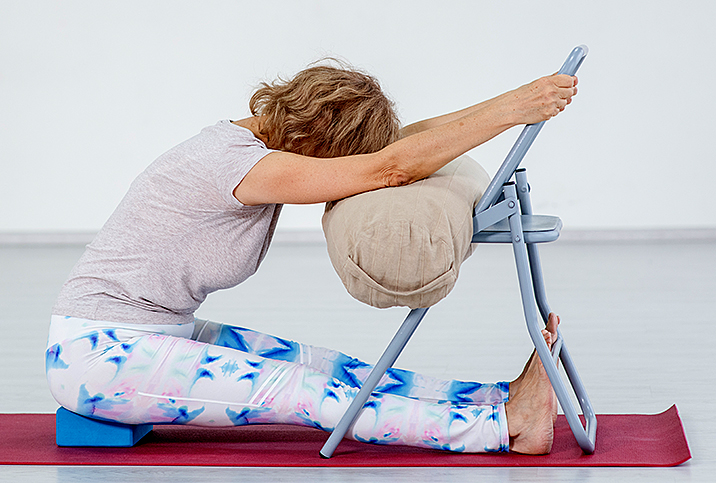Is It Possible to Reverse Aging?

Are you noticing signs of aging? No doubt, you are. We all do.
People in their 30s and older commonly feel tempted to undergo procedures or receive chemical injections when they spot hints of aging in the mirror. Experts in anti-aging medicine say there are more natural ways to reverse both visible and invisible signs of aging that you can start working on today.
The key lies in adopting healthy habits that slow down the biological or cellular aging process.
First, we need to differentiate between chronological and biological aging, the latter of which can be reversed, according to Florence Comite, M.D., a physician and the founder of the Comite Center for Precision Medicine & Health in New York City.
"Chronological aging is the number of candles on your birthday cake. You can't slow down the passing days and years," she said. "You can address the ways you age biologically. By understanding how fast you age and why, we can intervene in many ways to slow down, stop and reverse biological aging."
Biological age determines your health and lifespan
Dusan Sajic, M.D., Ph.D., an assistant adjunct professor of clinical medicine at Ontario's McMaster University in Canada, offered an analogy explaining how biological age determines our lifespan.
"Biological aging refers to wear and tear on the body," he said. "Think of it like a car: If you store your car in the garage and maintain it to be car show-ready, it's going to wear and tear a lot slower than a car that is neglected and whose engine is revved at every opportunity. Physiological and physical changes in the body can put additional stress on the cellular machinery and make us age faster. This can be influenced by genetics, environment, lifestyle choices and disease."
While biological aging affects everyone, social determinants of health, including race and gender, can influence how quickly one ages.
You may know what age is listed on your driver's license, but you probably don't know your biological age. Comite said it can be determined at a medical office using blood or saliva testing.
"Specialized medical professionals can detect current disease and predict future diseases of aging effectively and earlier so that you can reverse conditions before they progress to life-threatening stages," she said. "One way to measure biological age is by taking a sample of your cells and looking at specific sites along the genes that control DNA methylation. Methylation changes in our DNA correlate with our biological age."
How to slow down your biological aging process
Comite and Sajic both said practices such as eating processed and sugary foods, getting inadequate sleep, smoking and excessive alcohol consumption contribute to rapid biological aging. They recommended techniques proven to slow biological aging and increase health span, which Sajic defined as the portion of your life spent in good overall and sexual health.
Diet
Long-term calorie restriction and intermittent fasting have recently emerged as techniques to potentially slow down biological aging, according to Sajic. Scientists from the Columbia University Mailman School of Public Health conducted research that was published in February 2023. The findings suggested two years of calorie restriction led to a 2 percent to 3 percent slower pace of aging in the subjects studied.
The precise mechanisms by which these methods affect health and longevity are complex and still a subject of ongoing research, Sajic said, so it's best to consult with a physician and a registered dietitian to ensure safety.
Comite noted these techniques may not be applicable—or healthy—for all and offered some easily adopted guidance around eating proven to improve health span.
"Focus on food type and quality," she said. "Start every meal with lean protein, such as chicken, fish, tofu or lean beef. Protein has a more favorable impact on your metabolism because your sugar will rise more slowly. Also, eat at least four to six servings of vegetables and three to four servings of low-glycemic fruit daily."
Sleep
Getting adequate sleep triggers your immune system to release cytokines, proteins that help your body fight inflammation, injury and infection. Sleep plays a key role in maintaining metabolic processes that help you maintain health, heal, repair and grow muscle.
"Restorative deep sleep is extremely important for excellent metabolic health," Comite said. "Even just one night of poor sleep will modulate hormones, boost insulin resistance and elevate fasting glucose, leading to an increased risk of diabetes and cardiovascular diseases. Sleep is vital, and choices that you make will support a long, active and healthy life."
Exercise
Comite warned against maintaining a sedentary lifestyle no matter your age and state of health, recommending both cardio and strength training exercise methods.
"All exercise is good exercise, even just taking a walk to get your heart rate up," she said. "Don't forget to include weight-bearing strength training or resistance exercises to maintain skeletal muscle as we age. More muscle means less fat, and you will burn calories even at rest.
"Keeping your muscle is the best path for anti-aging because muscle protects you from diseases due to aging, such as diabetes, heart disease, stroke, Alzheimer's, osteoporosis and cancer, among others."
Education
If you've reached your 30s, Comite said, it might be time to seek medical testing to determine your biological health and explore your family's health history, especially your parents, grandparents, aunts and uncles.
"For most people, their hormones begin to decline in their 30s," Comite said. "Muscle mass also begins to decline and is replaced by fat. Fat invades the belly and the liver, leading to disorders of aging. This is all detectable, yet most people are unaware.
"Young and healthy people should still request key blood tests for five telling biomarkers—free testosterone, cholesterol ratio, A1C, fasting insulin and fasting glucose—and that will help a physician map an individual's health trajectory."
Supplements
One approach to slowing your biological aging process is taking supplements and adaptogens such as nicotinamide mononucleotide (NMN), quercetin, resveratrol and fisetin. These have been indicated in various studies to improve various markers of aging, Sajic said, but further research is needed to fully understand their underlying mechanisms.
"At present, all we know is that certain combinations of these supplements can upregulate biological markers associated with longevity in various animal models," he said. "Similar patterns are observed in humans."
Why improving your biological age matters
Sajic said when you improve your biological age and extend your health span, you're effectively enhancing your quality of life as you age.
"Many chronic diseases such as heart disease, diabetes and certain cancers are closely tied to the aging process," he said. "By slowing biological aging, you can lower your risk of developing these diseases. Biological aging can affect physical strength, endurance and cognitive abilities. Focusing on a lifestyle that slows biological aging can help maintain physical function and mental sharpness.
"Aging populations can also pose challenges for healthcare systems and societies at large. By staying healthier as we age, we can mitigate some of these challenges."
Paying attention to the process of getting older is not just individually advantageous. Improving your biological age can also reap benefits on a societal scale.
"While biological aging affects everyone, social determinants of health, including race and gender, can influence how quickly one ages," Sajic said. "By understanding this, we can work toward interventions and policies that address these disparities, promoting health equity."
Everyone owes it to themselves to do what they can to live their healthiest for as long as possible, Comite said.
"Everyone should have the option to feel healthy, active and energized—not just average," Comite said. "After all, what's the point of living to 120 or beyond if you can't dance on every birthday?"
Editor's note: These statements have not been evaluated by the Food and Drug Administration. Our medical experts advise that you consult with your primary healthcare provider before you begin using a supplement. This information is not intended to diagnose, treat, cure or prevent disease.


















